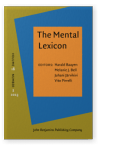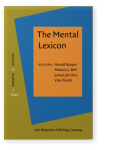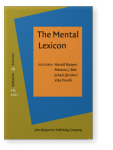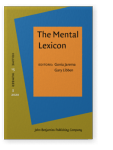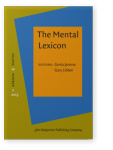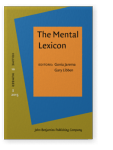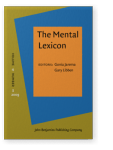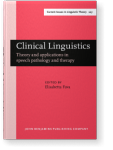Eva Kehayia
List of John Benjamins publications for which Eva Kehayia plays a role.
Journal
2025 How words can guide our eyes: Increasing engagement with art through audio-guided visual search in young and older adults The Mental Lexicon: Online-First Articles | Article
Pursuing cognitively stimulating activities, such as engaging with art, is crucial to a healthy lifestyle. The current work simulates visits to an art museum in a laboratory setting. Using eye tracking, we explored how linguistically guided visual search may increase attention, enjoyment and… read more
2022 A N400 event-related potential elicitation paradigm for Canadian French speakers The Mental Lexicon 17:1, pp. 104–131 | Article
The N400 event-related brain potential (ERP) can be used to evaluate language comprehension, and may be a particularly powerful tool for the assessment of individuals who are behaviourally unresponsive. This study presents a set of semantic violation sentences developed in Canadian French and… read more
2021 Processing lexicality in healthy aging and Alzheimer’s disease: P3 ERP amplitude as an index of lexical categorization The Mental Lexicon 16:2/3, pp. 204–239 | Article
To explore how processing lexicality may change with aging and in the presence of Alzheimer’s disease (AD), we conducted two experiments investigating lexicality judgements using an on-line behavioural psycholinguistic methodology and electrophysiological/event-related potential (ERP) methods;… read more
2020 Does stress matter? An investigation of Greek compound processing The Mental Lexicon 15:3, pp. 485–507 | Article
This study investigates the effect of stress change during compound processing in Modern Greek. Twenty-five native speakers were tested in a cross-modal lexical decision task and a naming task in order to test for performance differences across stress-change vs. non-stress-change compounds. No… read more
2015 Lexicality judgements in healthy aging and in individuals with Alzheimer's disease: Effect of neighbourhood density The Mental Lexicon 10:2, pp. 286–311 | Article
Neighbourhood density (N) has been shown to influence how lexical stimuli are accessed. In young adults, a large N is facilitatory for words but inhibitory for pseudowords in English. While there is a paucity of studies probing N as people age, results to date point towards changes in lexical… read more
2015 Electrifying the lexical decision: Examining a P3 ERP component reflecting early lexical categorization The Mental Lexicon 10:3, pp. 339–363 | Article
The current research utilizes lexical decision within an oddball ERP paradigm to study early lexical processing. Nineteen undergraduate students completed four blocks of the oddball lexical decision task (Nonword targets among Words, Word targets among Nonwords, Word targets among Pseudowords, and… read more
2009 Lexical access of mass and count nouns: How word recognition reaction times correlate with lexical and morpho-syntactic processing The Mental Lexicon 4:3, pp. 354–379 | Article
Two psycholinguistic experiments were carried out in Italian to test the role played by the feature that distinguishes mass nouns from count nouns, as well as by the feature that distinguishes singular nouns from plural nouns. The first experiment, a simple lexical decision task, revealed a… read more
2002 The role of verbal morphology in aphasia during lexical access: Evidence from Greek Clinical Linguistics: Theory and applications in speech pathology and therapy, Fava, Elisabetta (ed.), pp. 315–335 | Article
